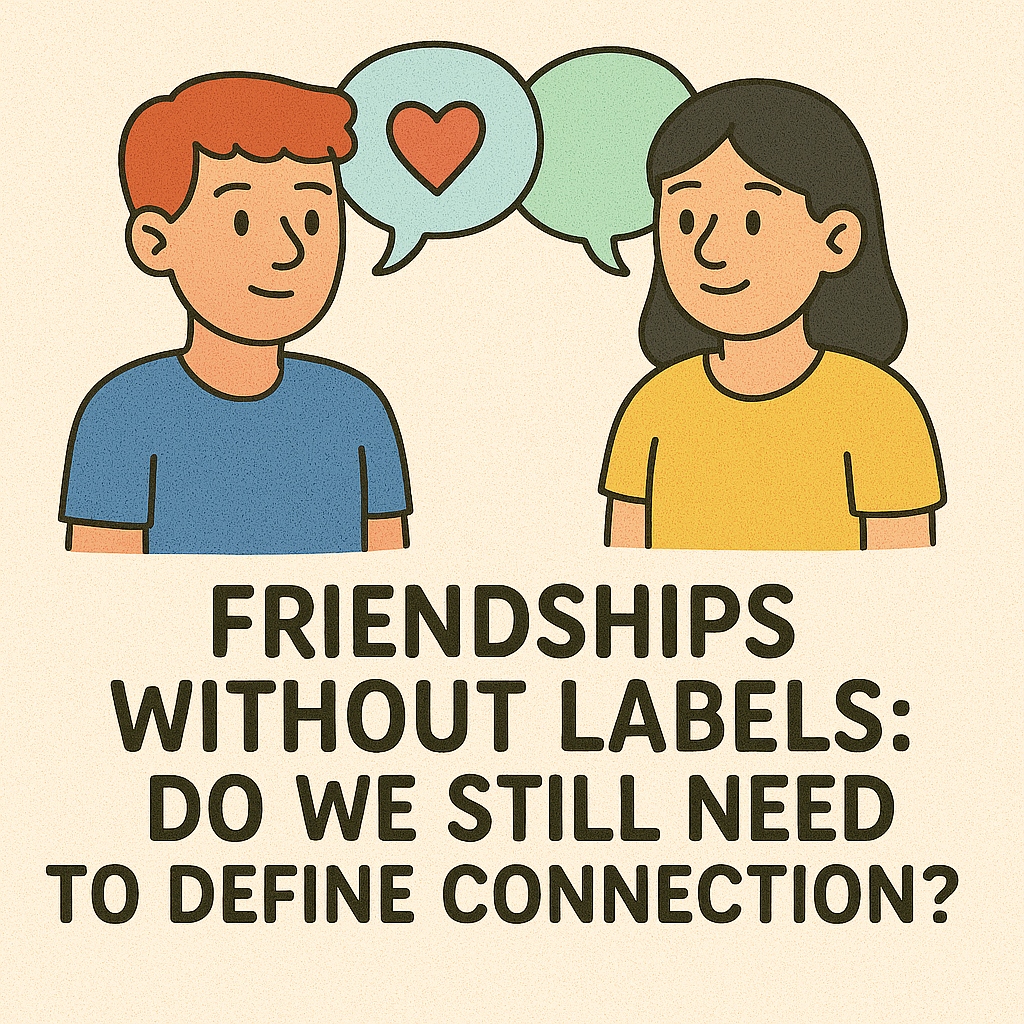In a world where relationships come in many shapes and sizes, the traditional idea of friendship is evolving. More and more people are experiencing connections that don’t fit neatly into predefined categories—friendships without labels. These are bonds that don’t carry the usual tags like “best friend,” “close friend,” or even “acquaintance,” yet they hold meaning and significance.
So, do we really need to define our friendships? Or can a connection simply be what it is—fluid, flexible, and free from expectations?
Let’s explore the idea of friendships without labels, why some people are embracing this ambiguity, and what it means for how we connect—both online and offline. Online video chat is considers best to connect on Uhmegle.
1. The Changing Landscape of Friendship
Historically, friendships were easier to categorize because they mostly happened in shared physical spaces—schools, neighborhoods, workplaces. Labels helped communicate expectations: a “best friend” is someone you trust deeply, while a “casual friend” might be someone you occasionally chat with.
Today, thanks to social media, online bazoocam, and even random video chat platforms where strangers meet, connections are forming in more diverse ways. You might share deep conversations with someone you’ve never met in person or feel close to a group of people you only interact with online.
Because of this complexity, the old labels feel limiting or inadequate.
2. Why People Are Choosing Friendship Without Labels
Freedom from Expectations
Labeling a friendship often comes with unspoken rules. For example:
- You “should” check in regularly.
- You “ought” to be available for emotional support.
- You might feel pressure to maintain closeness or meet in person.
Without labels, friendships can exist more naturally—without the pressure to perform or maintain certain standards.
Flexibility Across Contexts
Life is busy, and connections can ebb and flow. Some days you might chat frequently with someone online, other times you might go weeks without contact.
Unlabeled friendships allow for this flexibility. They acknowledge that connection doesn’t need to be constant to be meaningful.
Embracing Ambiguity
Not every relationship fits into a neat box—and that’s okay. Sometimes people just click without needing a definition.
Especially in talking to strangers online, connections start spontaneously and might never settle into a traditional friendship mold—but they can still be deeply impactful.
3. The Role of Online Friendships Without Labels
The internet is a prime space for friendships without labels. Random video chat platforms like OmeTV, Bazoocam, or Camfrog encourage users to meet strangers casually and chat. These encounters often don’t come with expectations—they’re momentary, exploratory, and fluid.
Similarly, social media and gaming communities allow people to form bonds over shared interests without formal definitions. You might call someone a “friend” in one chat but never label them beyond that.
The absence of physical presence combined with the digital nature of communication encourages this unlabeled connection. People feel freer to just be themselves without worrying about titles or roles.
4. Can Friendship Exist Without Labels?
The question arises: if we don’t name the relationship, does it still count as friendship?
Many would argue yes—friendship is fundamentally about connection, trust, and mutual care, not the words we use to describe it.
Consider:
- A person you message for advice occasionally.
- Someone you share jokes and experiences with online.
- A stranger you randomly chat with on a video platform who makes you feel heard.
Even without calling these “friends,” these connections provide support, understanding, and companionship.
5. Benefits of Embracing Unlabeled Connections
- Reduced Pressure: Without labels, there’s less guilt or anxiety about how “close” you should be.
- Authentic Interaction: You engage with people based on how you feel, not on societal expectations.
- Openness to New Experiences: You’re more willing to connect with people outside your usual social circles.
- Personal Growth: You learn to appreciate the value of connection itself, rather than the status of the relationship.
6. Challenges of Not Defining Friendships
While friendships without labels offer freedom, they can also lead to uncertainty:
- Misaligned Expectations: Without clear definitions, one person might expect more than the other is willing to give.
- Emotional Ambiguity: It can be hard to know where you stand or how much to invest.
- Social Validation: Sometimes, people crave the social recognition that labeled friendships provide.
Clear communication remains key, even in unlabeled relationships, to navigate these potential pitfalls.
7. Finding Balance: When to Define and When to Let Go
Not all friendships require labels, but some moments call for clarity. When deeper emotional investment or commitments come into play—such as helping through tough times or spending significant time together—it might be helpful to define the connection.
On the other hand, it’s perfectly fine to maintain lighter, unlabeled relationships for fun, casual support, or simple companionship—especially in online spaces.
8. Final Thoughts: The Future of Friendship Is Flexible
Friendships without labels reflect a broader shift in how we relate in a digital and globalized world. We’re learning that connection is more important than classification.
In fact, in spaces where people talk to strangers online or participate in random video chats, the lines blur between acquaintances, friends, and confidants. What matters is the quality of interaction and emotional resonance—not the label attached.
So, maybe the question isn’t do we need to define connection? but rather how can we best honor and nurture the connections we have—whatever form they take?

